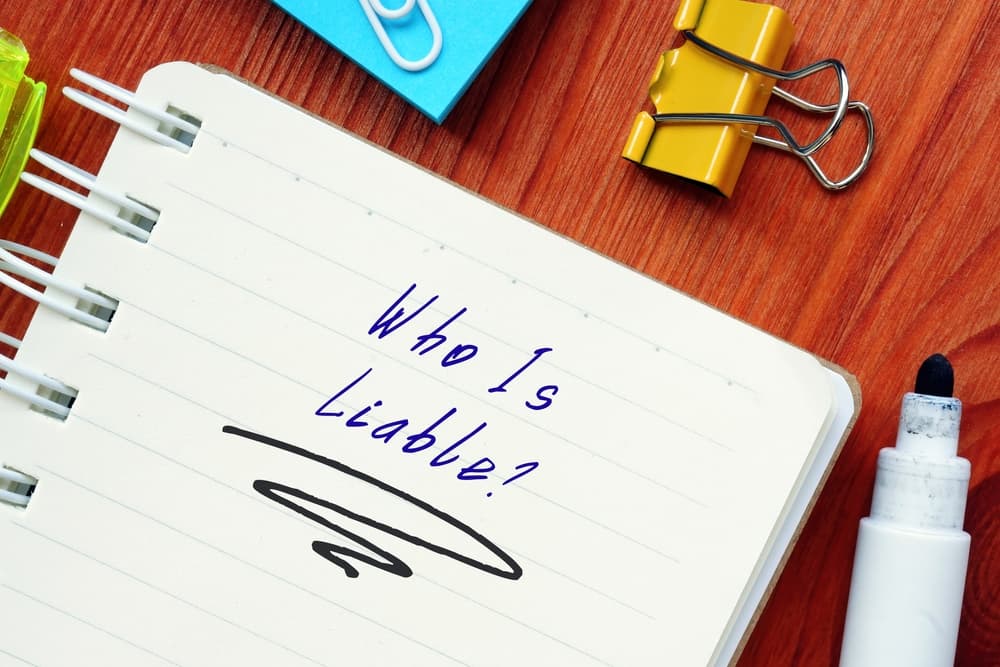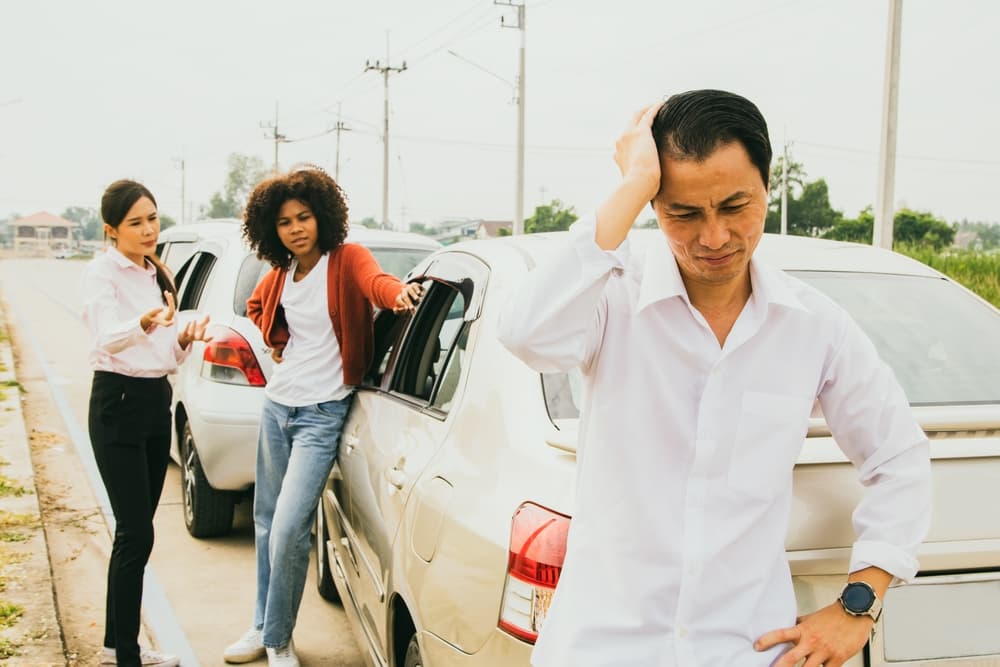Determining fault after an accident requires examining the various factors surrounding the collision and the laws that apply to each party. It’s not always as simple as blaming the person behind the wheel. In some instances, other road users or even the owner of a vehicle who lent their car to someone else could bear legal responsibility. Consulting with a car accident lawyer can be crucial in navigating the complexities of such cases and ensuring your rights are protected.
Understanding Vicarious Liability in Car Accident Cases
Vicarious liability is a legal doctrine that applies when one person is responsible for another’s actions. Typically, this liability arises out of a legal relationship between the two parties, such as an employer-employee relationship. In the context of car accidents, the vicarious liability doctrine can hold car owners accountable for accidents involving drivers who use their vehicles.
How Vicarious Liability Works in Car Accident Cases
When a car owner allows another person to drive their vehicle, they can face legal consequences if that driver causes an accident while they’re in the vehicle.
Let’s say a driver borrowing a vehicle causes a wreck by acting negligently or recklessly, and the car owner knew or should have known about the driver’s potential for irresponsible behavior. In that case, the law might hold the car owner liable for the accident’s consequences under the vicarious liability doctrine.
Parental Liability for Teen Drivers

When parents sign consent forms allowing their underage children to obtain driver’s licenses, they agree to take responsibility for their children’s actions behind the wheel.
If a teen driver causes an accident due to negligent behavior like texting while driving or driving while impaired, injured parties can pursue compensation from the parents based on this form of vicarious liability.
When Would the Driver of the Vehicle Be at Fault?
Whether or not they own the vehicle they’re driving, the driver of any vehicle could bear fault if their actions or inaction directly contribute to an accident.
This means the vehicle driver could cause an accident due to:
- Violation of Traffic Laws: If a driver runs a red light, speeds, fails to yield, or breaks any other traffic law and causes an accident, they typically bear the fault. Traffic regulations exist to maintain order and safety on the roads, and drivers who violate them are often subject to liability.
- Driving Under the Influence: When a driver operates a vehicle after consuming alcohol or drugs and causes an accident, they are usually at fault. Laws against drunk or drugged driving are strict because of the severe risk these behaviors pose to everyone on the road.
- Distracted Driving: Drivers are usually responsible if they cause accidents due to texting, making phone calls, eating, or engaging in other distracting activities while driving. Distracted driving has become a nationwide concern in recent years, contributing to numerous accidents and fatalities.
- Reckless or Aggressive Driving: Drivers can face liability for causing accidents if they weave between lanes, tailgate, or exhibit other reckless or aggressive behavior on the road.
- Failing to Yield the Right-of-Way: Accidents often occur when drivers don’t yield the right of way where it’s due, such as at crosswalks for pedestrians or at intersections or roundabouts for other vehicles. A driver could be at fault if their failure to yield causes a preventable accident.
- Improper Passing or Lane Changing: Overtaking another vehicle without ensuring it’s safe or changing lanes without checking blind spots or signaling can lead to collisions. In such cases, the fault usually lies with the driver who made the dangerous maneuver.
- Failure to Signal: Drivers who fail to use their turn signals or leave them on mistakenly often confuse other road users. If this behavior results in an accident, the driver who failed to use their indicators correctly is often liable.
- Failure to Monitor Blind Spots: Every vehicle has blind spots – areas not visible to the driver through standard mirrors or windows. If a driver doesn’t check these areas before maneuvering and causes a collision, they could be at fault for the accident.
- Failure to Adjust to Unfavorable Conditions: Every driver should change their driving behaviors when their surroundings require it for safe vehicle operation. Unfavorable conditions that mean drivers should adjust their driving habits could include inclement weather, road construction, traffic jams, or any other disruption in the regular flow of traffic.
When Can You Hold the Owner of the Vehicle at Fault?
The driver isn’t always the only one responsible for a car accident. In many cases, vehicle owners can also face liability, even if they aren’t at the accident scene.
Here’s a breakdown of possible scenarios in which a vehicle owner could be at fault for a traffic crash:
- Negligent Entrustment: Negligent entrustment occurs when a car owner lends their vehicle to someone even though they know or should predict that the borrower poses a high risk. Entrusting a vehicle to someone with a history of reckless behavior, a known substance abuse problem, or no valid driver’s license is dangerous and possibly illegal. If a high-risk individual causes an accident in someone else’s car, you can hold the owner responsible for the consequences.
- Vehicle Maintenance: Every car owner has a duty to ensure their vehicle is in safe working order before anyone drives it in public areas. When brakes or tires wear down, tail lights break, or other mechanical issues go ignored, they pose a risk to the driver and everyone else on the road. If an accident happens because a vehicle owner ignored such maintenance issues, they could bear full or partial blame for the wreck.
- Permissive Use: Permissive use policies do not directly attribute fault after an accident, but they do place financial responsibility on car owners. If you give someone permission to use your vehicle and they get in an accident, your insurance might be the primary source of coverage for damages. In that case, even if the driver has their own insurance, your auto policy might still pay for injured claimants’ damages.
- Family Purpose Doctrine: This doctrine extends the responsibility of car ownership within the family unit. If, for instance, a teenager takes the family car to buy groceries and causes an accident, the victim can hold the car owner (often a parent) liable. The underlying principle here is that the teen was driving the car for a family purpose, which makes the owner indirectly responsible for the teen’s use of the vehicle.
- Business Use: Companies that provide vehicles for their employees take on a certain amount of risk. The company might need to pay if an employee causes an accident in a company car while performing their job or during work hours. The burden might fall back onto the driver, however, if they drove while impaired, recklessly, or performed illegal actions while using the vehicle.
Do Insurance Policies Follow the Car or the Driver in Georgia?

In Georgia, auto insurance policies typically follow the car, not the driver. If you lend your vehicle to someone and they get into an accident, your insurance will cover any claims. This rule applies even if the borrower has their own insurance.
For instance, let’s say your friend borrows your car and collides with another vehicle. In that case, your insurance policy would kick in first to cover the injured party’s losses. If the costs exceed your policy limits, your friend’s auto insurance might come into play to cover the remaining expenses.
However, there are exceptions. Some policies have exclusions for specific drivers or non-listed drivers, which can affect how coverage applies. Vehicle owners must read and understand their policy details and discuss any ambiguities with their insurance agents or personal injury lawyer.
Car Accident Liability FAQs
To make car accident liability in Georgia clearer, we’ve answered some of the questions we most frequently hear on the subject of accidents in a car that isn’t theirs.
If Someone Borrows My Car and Causes an Accident, Am I Responsible?
If you give someone permission to drive your car in Georgia and they get into an accident, your insurance will most likely need to cover it.
However, you need to differentiate between someone you allowed to use your car and someone who took it without permission. In the former scenario, you more likely bear responsibility. If someone steals your car and then causes a collision, liability for the crash and any subsequent losses would likely fall upon the thief.
Can You Hold a Car Owner Liable if They Weren’t Present During the Accident?
Yes. If the owner knowingly lends their vehicle to a driver with a history of reckless driving, you can hold the owner responsible for negligent entrustment. Similarly, you can hold the owner liable if their failure to maintain the car in safe condition contributed to the accident.
Can a Crash Victim Sue Me Personally if Someone Is in a Crash While Driving My Car?
Yes. Under certain circumstances, crash victims could bring a lawsuit against a car owner. This often hinges on whether the owner’s decisions or actions contributed to the crash, like lending a car to someone with a known history of drunk driving. This highlights the importance of robust insurance coverage to protect yourself from substantial out-of-pocket costs, especially if you lend your vehicle to others.
What Happens if the Driver of My Car Was Under the Influence When They Crashed?
Driving under the influence is a serious offense. If the driver of your car was drunk when they crashed, they could face severe legal repercussions ranging from fines to imprisonment. Additionally, if you lent your car to them despite knowing about their intoxicated state, you might also bear liability for any damage or injuries resulting from their actions.
What if Someone Stole My Vehicle and Then Got in an Accident?
It depends. In general, if your car gets stolen and the thief causes an accident, you won’t bear liability for the crash. However, if you left your car running with keys in the ignition in a public space, a crash victim could argue that you contributed to the accident by acting negligently.
Does It Affect My Insurance Rates if I Allow Someone to Drive My Car and They Cause an Accident?
It likely will. Insurance companies calculate premiums based on risk. If a person you permitted to drive your car causes an accident, the insurance company might decide your policy is riskier, leading to an increase in your premiums. The extent and duration of the rate hike can vary based on the severity of the accident and the terms of your insurance policy.
How Can I Protect Myself From Liability if I Lend My Car to Someone?

Caution is key. First, always verify the borrower’s driving credentials and evaluate their competence and trustworthiness. Check their driving record. Furthermore, familiarize yourself with your insurance policy so you know the extent of your coverage. If you frequently lend your car, purchase additional liability coverage or an umbrella policy to offer extra protection.
